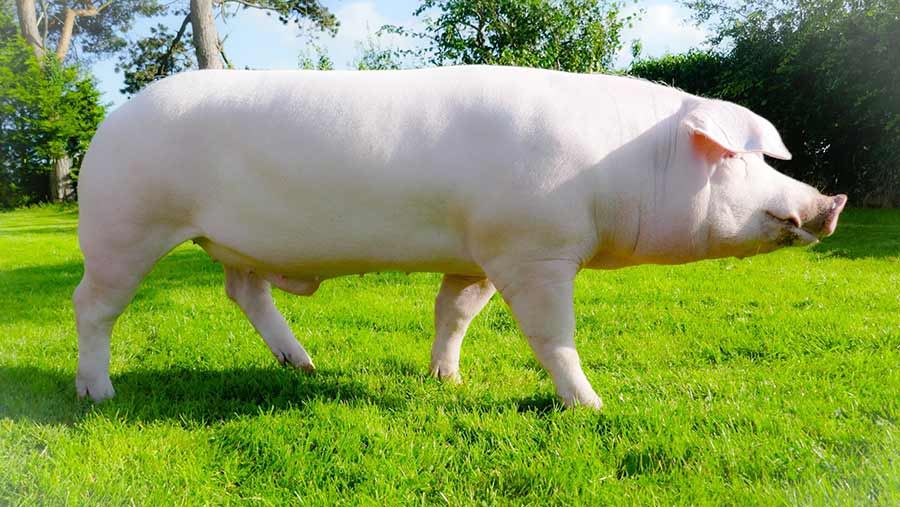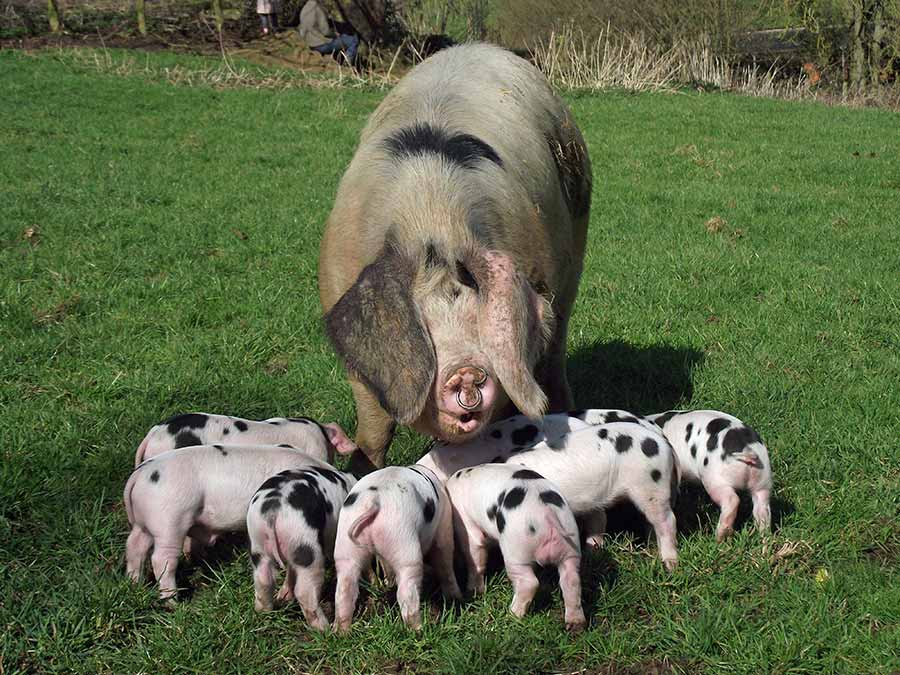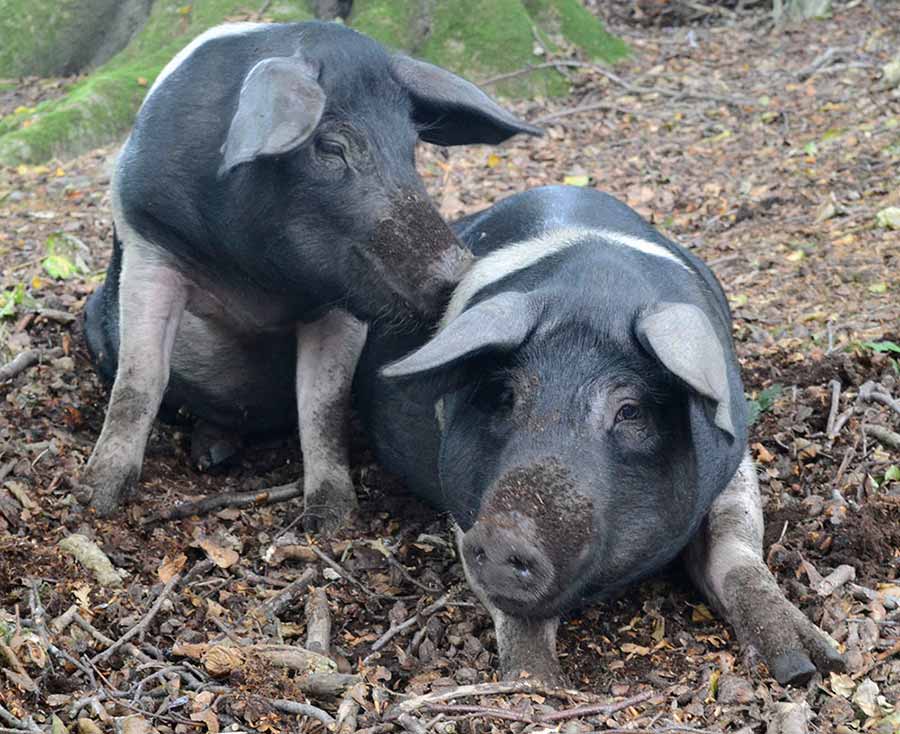Just 23 British Landrace sows left, warns rare breeds group
 A British Landrace boar © Donagh Esmer
A British Landrace boar © Donagh Esmer Some of the UK’s rare breeds of native pigs are increasingly under threat, with the ongoing crisis in the pig sector blamed for reducing British Landrace sow numbers to just 23.
The Rare Breeds Survival Trust (RBST) says the poor returns for pig producers are driving a “very worrying and worsening situation” for other rare breeds too, including the British Saddleback, Gloucester Old Spot, Oxford Sand & Black and Middle White, which has fallen to its second-lowest number of registered dams since 2001.
See also: Gloucester cattle can be profitable, says breed trust
But it is the British Landrace, once the UK’s most popular commercial breed, that is the biggest cause for concern, with numbers nearly halving over 12 months. In 2006 there were 495 dams registered.
There is one exception to the worsening outlook for rare pig breeds, with the Large White seeing an improvement in new birth registrations.

Gloucestershire Old Spot © RBST
RBST chief executive Christopher Price says the government is being asked to urgently consider native pig breeds as it reviews the pork supply chain.
“We are working with the British Pig Association and the small but dedicated community of British Landrace keepers to make sure the breed’s excellent attributes aren’t overlooked, as well as ramping up support for conservation and breeding programmes,” he said.

British Saddleback © RBST
Other species
Also on the RBST’s 2023 Watchlist are Llanwenog and Castlemilk Moorit sheep, Gloucester cattle, various rare poultry breeds, Eriskay ponies and the Suffolk Horse.
High costs and avian influenza restrictions have resulted in a contraction in rare poultry breeding programmes – some breeders have ceased their programmes completely.
There is good news, though, for the UK’s four native breeds of goat, with Bagot, Golden Guernsey, English and Old English all showing stability or growth in registrations.
The data is also encouraging for the stability of Albion cattle and Northern Dairy Shorthorn cattle on the RBST’s Priority list, and Greyface Dartmoor and Norfolk Horn sheep breeds on the At Risk register.
